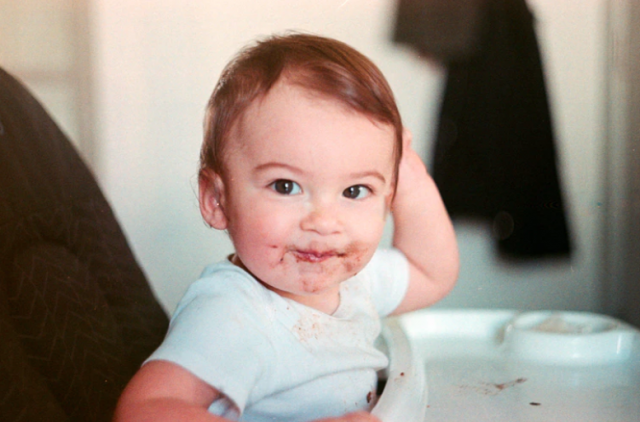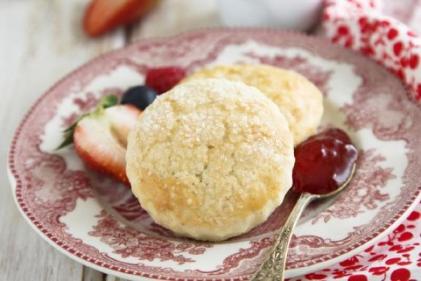The first years of a child's life are crucial for brain development. Love, security, and care are important, but the food they eat also plays a big role. Nutritious food is the building block for all of us, especially for toddlers who are yet to grow. Given that small children eat less than adults, their food needs to be more nutritious. Generally, a good food day should consist of breakfast, lunch, dinner, and snacks.
(Image source: Logan Cameron from Unsplash)
Learning how to prepare healthy food for toddlers, involves getting the right kind of fats, minerals and vitamins, fibre, and whole grains. It can be challenging for parents to have their children eat the daily amount of vegetables and fruit, but with little imagination and creativity, even the best celery can look appetizing for picky children.
Nutrition, especially in a phase of constant development such as childhood, should be based on all aspects of growth. In other words, a child's diet should be based not only on the benefits for the body but also on cognitive function.
Some foods offer significant benefits for the optimal development of the brain. Below we share a list of the best power foods for your baby's brain.
Whole Grains
Whole grains are much cooler than they sound. The good thing about whole grains is that they contain so many nutrients, not only vitamins and minerals but also various sorts of fiber and other protective plant substances. Whole grains and fibre are essential for toddlers, normally in moderation. How much fibre a toddler can eat without affecting the stomach varies from one child to another, so you have to try it out.
Choose whole-grain products in the form of brown rice, whole-wheat pasta, whole wheat bread, and cereals that are rich in B vitamins to meet the brain's need for glucose and energy and nourish it.
Egg In All Its Forms
Image source: Rosalind Chang from Unsplash
The biggest benefit of eggs, especially the egg yolk, is that it contains choline which is associated with B vitamins. It creates myelin, a substance that covers the connection between the neurons in the body. Choline can also be found in leafy vegetables, which are of great importance for the toddler when the brain's connections are formed.
Of course, it is important to choose a varied diet containing choline (Brussels sprouts, broccoli, sunflower seeds, and peanuts, for example) and not to rely solely on eggs.
Oily Fish
Fish is rich in, among other things, vitamin D, iodine, and selenium. It is precisely these substances that can be difficult to get enough of. Both small children and adults are therefore recommended to eat fish 2-3 times a week.
It is good to vary between different types of fish. Almost 60 percent of the brain is made up of essential fats. So oily fish are a great way to feed your little ones. Fatty fish such as herring, salmon, and mackerel contain the special omega-3 fats, natural oils that build cell membranes in the brain, which are good for the development of the toddler’s brain and eyesight. Children who never eat fish, due to allergies, for example, need to get them from other sources. Rapeseed oil and rapeseed oil-based edible fats contain omega-3 fats as well.
For a child to absorb all the important nutrients found in fish, you need to encourage them to like fish. If they don't like it at first, you should try again another day. There are different recipes you can use to dress it up differently, so don't be discouraged if they don't like it on the first go.
Dairy and Dairy Alternatives
Image source: Pinterest
Milk and dairy products contain many important nutrients including calcium needed for healthy bones, as well as iodine, zinc, potassium, riboflavin (vitamin B2), and vitamin B12. Dairy and its alternatives are packed with protein and B-vitamins which are essential for the good growth of brain tissue.
Oatmeal and Blueberries
Oatmeal is a great source of vitamins and minerals which are necessary for a child's development and the great thing about oatmeal is that you can prepare it in so many different ways so your little one doesn't tired of eating the same food all the time.
You can vary your toppings, with, for example, blueberries which work well and tend to be a favourite. Blueberries contain antioxidants such as anthocyanins, polyphenols, and flavonoids. Anthocyanins seem to be able to help protect the vitamin A in the eye from free radicals, and it has been repoted that they can have positive effects on learning ability, memory, and coordination.
Veggies and Meat
If you wonder why we have vegetables and red meat in the same category, it is because both contain the same fundamental nutrients.
For example, giving your toddler broccoli is an excellent choice because not only is it low in calories and satiating but also contains substances that have positive effects on the brain. Broccoli contains, among other things, a substance called sulforaphane which is believed to have strengthening effects on the blood-brain barrier.
Both veggies and meat provide the body with protein, which is very important for the formation of tissue in the body. Not all proteins contain essential amino acids, which are those that take care of the central nervous system, so it's always advisable to give a varied protein intake.
Both vegetables and meat offer a significant amount of iron, which promotes the uptake of oxygen that is transported to the brain via the blood. A balanced iron intake helps to prevent difficulty concentrating, and tiredness in general.
Eating habits are established early on. Already during fetal life, the baby gets to try flavours from the mother's food via the amniotic fluid and later also via the breast milk.
A regular and varied diet guarantees you child gets everything they need. A diet that includes vegetables, fruits, vegetable oils, and fish contains nutrients and vitamins that protect the brain's blood vessels and heart and which also contributes to the brain making your child feel good.
Unfortunately, no single food works like a magic wand. The healthy and varied options suggested in the article above are some powerful food choices for your toddler that will help to develop and maintain the health of the brain.






